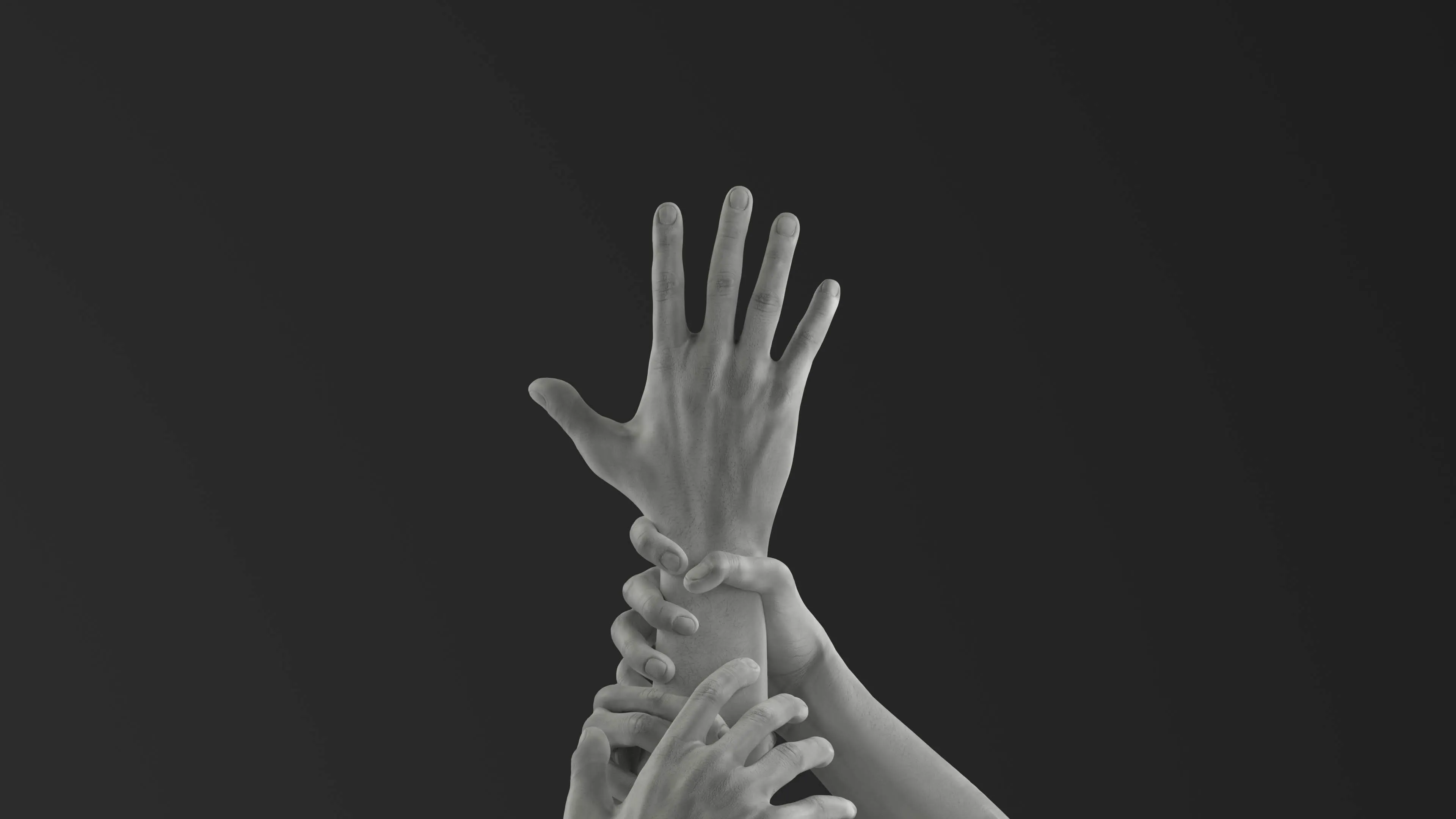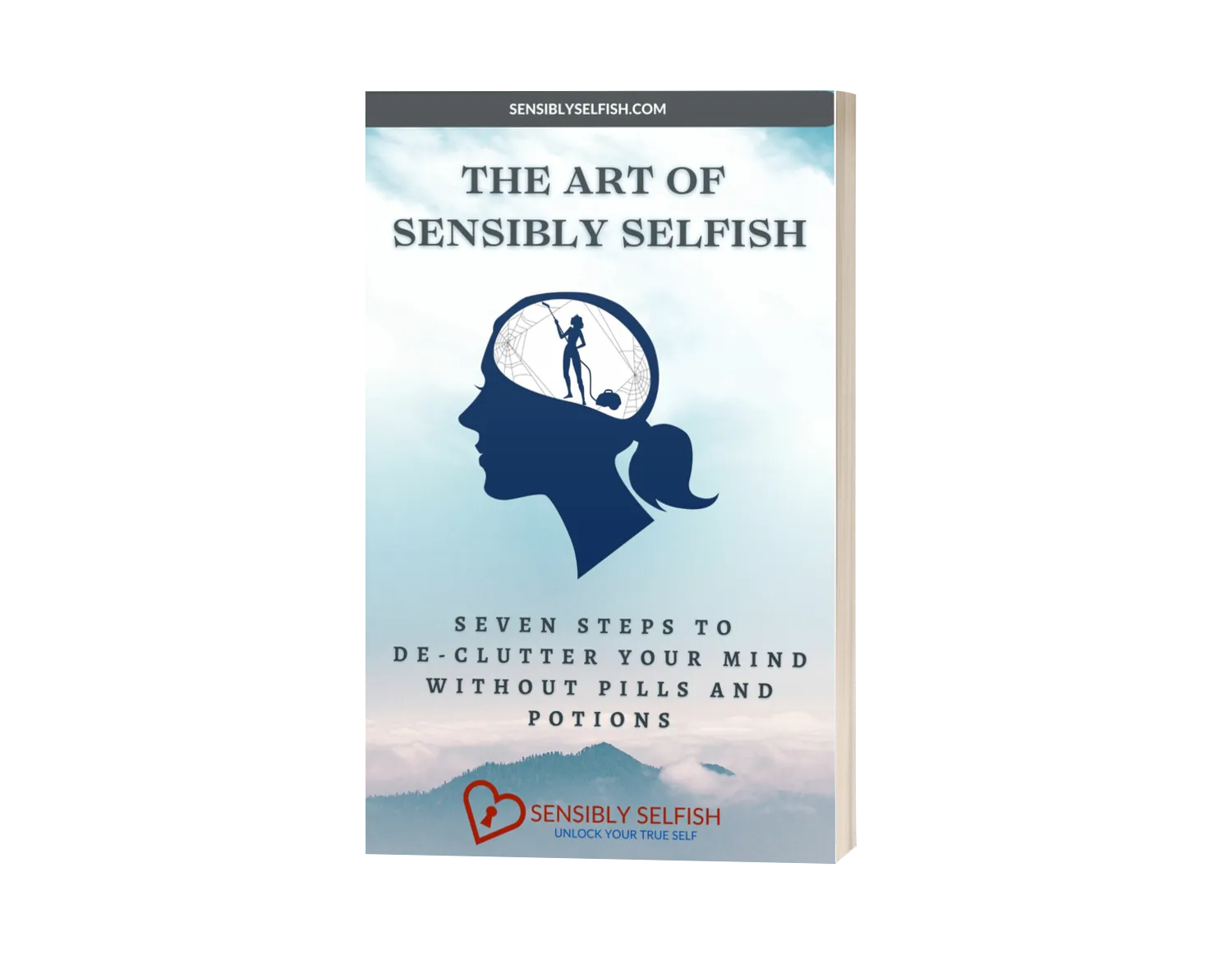Overcome Worry
Embracing Peace and Inner Calm
[Toc]

Midlife Millstones
In the fast-paced world, we live in, worry has become an unwelcome companion for many. The weight of concerns, both big and small, can take a toll on our mental health, leaving us feeling overwhelmed and anxious. Turn on the news, look at Social media, or listen to local gossip in the bar and you will add further worry to your midlife millstones. For women over 45, this burden can be even more significant as they navigate various life changes and unique challenges.
The Prevalence of Worry and Its Impact on Mental Health
Worry is a common human experience, but its prevalence among women is noteworthy. Juggling responsibilities, family obligations, career advancements, and self-care can leave them feeling vulnerable to anxiety's grasp. The long-term impact of unchecked worry on mental health is profound and can hinder their ability to enjoy life to the fullest.
The Unique Challenges
Midlife is a pivotal point in life. Dealing with menopause, empty nests, aging parents, and career transitions can lead to heightened worry levels. Understanding these specific challenges can help create targeted strategies to address and alleviate their concerns.
The Importance of Addressing Worry for a Fulfilling Life
Worry can act as a roadblock on the path to happiness and fulfillment. By acknowledging and actively working to overcome worry, you can unlock the potential for a more peaceful and gratifying life. This blog post aims to explore effective techniques and practical tips to empower women over 45 to embrace peace, overcome worry, and find inner calm amidst life's uncertainties.

The Nature of Worry
Unfortunately, we cannot avoid worrying totally, it is part of being human. Yet, when we identify why we worry, common triggers, and worry signals we have information to understand the nature of worry.
Exploring the Origins of Worry and Its Evolutionary Purpose
Worry, ingrained in the human psyche, has a long evolutionary history. Our ancestors' survival depended on being vigilant to potential threats, leading to the development of a natural response to worry. In modern times, this instinctual response often extends to non-life-threatening situations, contributing to increased anxiety. Distinguishing between legitimate concerns and unnecessary worry creates space for calm and inner peace.
Identifying Common Triggers for Worry
Women in midlife face a unique set of circumstances that can trigger worry. From health concerns to financial stability and changing family dynamics, these triggers can become overwhelming if not properly addressed. Recognizing these common worries empowers them to take proactive steps toward managing their concerns effectively.
How Excessive Worry Differs from Regular Concern
Worry, in its essence, can be a useful emotion that signals the need for attention. However, when worry becomes excessive and uncontrollable, it transforms into chronic anxiety, negatively impacting overall well-being. Understanding the fine line between regular concern and excessive worry allows insight into emotional states and taking charge of mental health. By acknowledging this distinction, you can develop healthy coping mechanisms to alleviate unnecessary worry and embrace a more balanced approach to life's uncertainties.

The Effects of Worry on Women Over 45
Physical Health Implications
Worry doesn't just affect the mind; it can have significant physical repercussions on women over 45. Chronic worry is linked to elevated stress levels, which can lead to a compromised immune system, digestive issues, headaches, and even cardiovascular problems. Prolonged exposure to stress hormones can accelerate the aging process, making it essential for women in this age group to address their worries to maintain overall health and well-being.
Emotional and Psychological Toll
The emotional and psychological toll of worry can be profound. Persistent worry can contribute to feelings of helplessness, sadness, and a sense of being overwhelmed. It may also exacerbate existing mental health conditions such as depression and anxiety. Coping with life changes can be emotionally taxing, but learning effective strategies to manage worry can help preserve emotional resilience and mental clarity.
The Impact on Relationships and Social Interactions
Unchecked worry can affect relationships with family, friends, and colleagues. Women over 45 may withdraw from social interactions, fearing judgment or criticism. Additionally, excessive worry may lead to irrational reactions or unnecessary conflicts, straining interpersonal connections. Addressing worry not only benefits one's inner peace but also enhances the quality of relationships and strengthens support systems during challenging times.

Embracing a Positive Mindset
Practicing Gratitude and Its Role in Reducing Worry
Gratitude is a powerful tool for transforming perspective and minimizing worry's grip. Women can benefit from adopting a daily gratitude practice, acknowledging the positive aspects of their lives, even amidst challenges. Focusing on gratitude helps shift attention away from worries, promoting a sense of contentment and fostering a more optimistic outlook on life.
Reframing Negative Thoughts and Self-Talk
Negative thoughts and self-talk can amplify worries, leading to a cycle of pessimism and anxiety. By becoming aware of these patterns, you can learn to challenge and reframe negative thoughts into more balanced and realistic perspectives. Emphasizing self-compassion and treating oneself with kindness during difficult times can help break free from the shackles of self-doubt and worry.
Cultivating Optimism and Resilience
Optimism is a valuable trait that can bolster resilience in the face of adversity. You can cultivate optimism by focusing on solutions rather than dwelling on problems. Developing a growth mindset that views challenges as opportunities for learning and growth can empower you to tackle worries with greater confidence and determination.

Effective Strategies to Avoid Worry
Mindfulness and Its Power in Staying Present
Mindfulness is a practice that encourages you to stay fully present in the moment without judgment. By focusing on the here and now, you can break free from the cycle of worry about the past or future. Mindfulness techniques, such as mindful breathing or body scanning, help cultivate a sense of calm and centeredness, reducing the impact of worrisome thoughts.
The Role of Meditation and Deep Breathing Exercises
Meditation and deep breathing exercises are powerful tools to quiet the mind and soothe anxiety. Regular meditation practice allows you to observe thoughts without becoming entangled in them, fostering a sense of detachment from worries. Deep breathing exercises trigger the body's relaxation response, easing tension and promoting a state of tranquility.
Engaging in Physical Activity and Its Impact on Mental Health
Physical activity is a natural stress reliever and mood booster. Whether it's a brisk walk, yoga, or dancing, exercise releases endorphins, which act as natural mood elevators. For women over 45, engaging in regular physical activity not only enhances physical health but also provides a positive outlet for managing stress and worry.

Time Management and Prioritization
How Better Organization Reduces Worry and Stress
Effective time management and organization can significantly alleviate worry and stress for women. By creating structured routines and setting aside specific time for tasks, they can gain a sense of control over their responsibilities. Breaking tasks into smaller, manageable steps also reduces the feeling of overwhelm and promotes a more focused and productive approach to daily challenges.
Setting Realistic Intentions and Expectations
Unrealistic intentions and high expectations often fuel worry and disappointment. You can avoid this trap by setting achievable goals and embracing flexibility. Recognizing that life is full of uncertainties and setbacks allows you to adapt gracefully and avoid unnecessary stress. Celebrating even small successes along the way reinforces a positive mindset and encourages continued progress.
[CTA]
The Importance of Self-Care and Scheduling "Me Time"
In the midst of life's demands, self-care often takes a backseat. However, prioritizing "me time" is essential for mental and emotional well-being. Engaging in activities that bring joy and relaxation, whether it's reading, spending time in nature, or pursuing hobbies, rejuvenates the mind and reduces worry. By setting aside time for self-nurturing practices, you can replenish your energy and face challenges with renewed strength.

Building a Support System
Nurturing Relationships with Family and Friends
For women over 45, fostering meaningful connections with family and friends can be an invaluable source of support. Engaging in open communication and sharing concerns with loved ones allows for a sense of understanding and empathy. These strong bonds create a support system that offers encouragement, a listening ear, and a sense of belonging during challenging times.
Seeking Professional Support When Needed
There may be moments when worries feel overwhelming and difficult to manage alone. Seeking professional support from therapists, counselors, or support groups can provide a safe space to explore feelings and gain valuable coping strategies. Professional guidance can offer fresh perspectives, tools for managing stress, and emotional validation, facilitating a positive transformation in their outlook on life.
Joining Community Groups for Connection and Shared Experiences
Connecting with others who share similar interests or experiences can be profoundly beneficial. Women over 45 can consider joining community groups, clubs, or online forums that align with their passions or life stage. Engaging in shared experiences within a supportive community fosters a sense of camaraderie and understanding, reducing feelings of isolation and worry.

Embracing Change and Uncertainty
Accepting the Inevitability of Change
Change is an inherent part of life's journey, and women over 45 can find empowerment by accepting its inevitability. Embracing change as a natural and constant occurrence helps alleviate worries associated with the unknown. By recognizing that change often brings new opportunities for growth and learning, they can approach life's uncertainties with a more positive and open mindset.
Coping with Life Transitions Gracefully
Life transitions, such as retirement, children leaving home, or career shifts, can trigger worry and anxiety. Coping with these changes gracefully involves acknowledging and processing emotions while maintaining self-compassion. Women over 45 can seek guidance from their support system, seek professional advice, or explore self-help resources to navigate through these transitional phases with greater ease and resilience.
Developing Flexibility and Adaptability
Developing flexibility and adaptability is key to thriving amidst uncertainty. Being open to adjusting plans and embracing new perspectives enables women over 45 to respond more effectively to unexpected challenges. Cultivating adaptability empowers them to view change as an opportunity for personal growth and fosters a sense of control over their own lives.

Letting Go of Perfectionism
Understanding the Negative Impact of Perfectionism on Worry
Perfectionism can be a silent driver of worry, leading women over 45 to place unrealistic expectations on themselves. The fear of making mistakes or not meeting impossibly high standards can create chronic anxiety. Recognizing the link between perfectionism and worry is the first step towards breaking free from this self-imposed pressure.
Embracing Mistakes and Turning Them into Opportunities for Growth
Mistakes are an inevitable part of life, and women over 45 can learn to view them as stepping stones rather than stumbling blocks. Embracing mistakes as opportunities for learning and growth reduces worry about being flawless and allows for a healthier perspective on personal development. Accepting imperfections fosters resilience and opens doors to new experiences and achievements.
The Importance of Self-Compassion
Practicing self-compassion is a transformative way to counteract worry stemming from self-criticism. Women over 45 can cultivate self-compassion by treating themselves with the same kindness and understanding they would offer to a dear friend. Embracing self-compassion means acknowledging that everyone makes mistakes and faces challenges and that it is okay to be imperfect. By embracing self-compassion, women over 45 can alleviate worry, develop a more positive self-image, and nurture a greater sense of emotional well-being.

Finding Purpose and Meaning
Rediscovering Passions and Hobbies
As women over 45 navigate different life stages, they may find joy and purpose in reconnecting with long-lost passions and hobbies. Exploring interests that bring fulfillment can serve as a powerful distraction from worry and provide a sense of purpose. Whether it's painting, gardening, or learning a new skill, engaging in these activities can infuse life with enthusiasm and meaning.
Volunteering and Giving Back to the Community
Contributing to the community through volunteering can be a deeply gratifying way to find purpose and alleviate worry. Women over 45 can share their expertise, time, and compassion with others in need. Volunteering fosters a sense of connection and empowers them to make a positive impact, shifting the focus from personal concerns to collective well-being.
Seeking Spiritual or Philosophical Guidance
For some, finding purpose and meaning goes hand in hand with exploring spirituality or philosophical beliefs. Engaging in practices like meditation, prayer, or attending philosophical discussions can provide a sense of inner peace and clarity. Such pursuits offer women over 45 an opportunity to reflect on life's deeper questions and find solace in a higher purpose or sense of interconnectedness.

Seeking Professional Help When Necessary
Recognizing the Signs of Chronic Worry or Anxiety Disorders
It is crucial for women over 45 to be aware of the signs of chronic worry or anxiety disorders. Persistent feelings of unease, excessive fear, physical symptoms such as insomnia or headaches, and difficulty in daily functioning may indicate a need for professional intervention. Recognizing these signs early allows for timely and effective support.
Understanding the Benefits of Therapy and Counseling
Therapy and counseling provide a safe and non-judgmental space for women over 45 to explore their worries, emotions, and concerns. Trained mental health professionals can help identify underlying issues contributing to worry, provide coping strategies, and foster personal growth. Therapy offers valuable tools for managing stress, building resilience, and improving overall well-being.
The Importance of Prioritizing Mental Health
Just as physical health is crucial, mental health is equally essential. Prioritizing mental health means acknowledging that seeking help is a sign of strength, not weakness. Women over 45 can nurture their emotional well-being by recognizing when worries become overwhelming and taking proactive steps to address them. Investing in mental health positively impacts all aspects of life, enabling them to lead a more balanced and fulfilling existence.

Louise Comments - "Always Unfold with Grace"
“In the tapestry of life, each thread weaves a unique tale. Sometimes events may appear as setbacks, and at other times, they may seem like blessings. When we embrace uncertainty, we know that life's plot unfolds with twists and turns beyond our control.
The key to challenges, is to remain resilient, for within every adversity lies hidden opportunities. Like puzzle pieces falling into place, setbacks often lead to personal growth and unforeseen doors opening.
I relish tiny moments of joy, cherishing them without clinging too tightly. Life's joys are fleeting, and when embraced fully in the present, I understand that moments of happiness are to be cherished and celebrated.
With an open heart and a curious spirit, I can navigate the chapters of my life, knowing that the story is still unfolding. I remain the author of my own narrative, embracing both the highs and lows with grace and wisdom. For in this ever-evolving story, the journey itself is the treasure I hold dear.”

What do you Choose?
And Finally, did you know that in a CT scan, the brain's response to both negative emotions such as fear, worry, or anxiety, and the emotions of excitement can be surprising and intriguingly similar?
When experiencing worry, fear, or anxiety, the amygdala, a region associated with processing emotions, becomes active. Interestingly, this same area also lights up when we are excited about something. The overlapping activation suggests that the brain's response to these seemingly contrasting emotions might share a common neural pathway.
What differentiates fear from excitement lies not in the brain's response itself, but rather in how our mind interprets and labels the physiological arousal. While fear is often associated with negative anticipation, excitement is linked to positive expectations. This remarkable parallelism in brain activity sheds light on the complex and interconnected nature of our emotions, showing how our perceptions and attitudes can play a significant role in shaping our emotional experiences. If you have to choose between worry or excitement, what do you choose?









